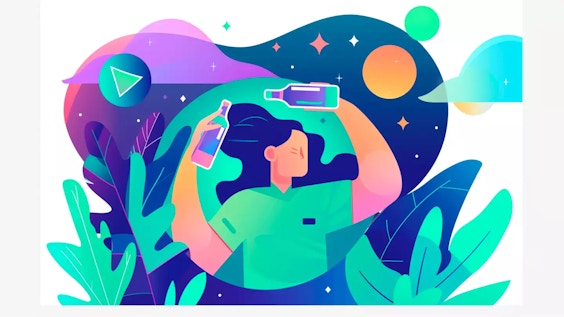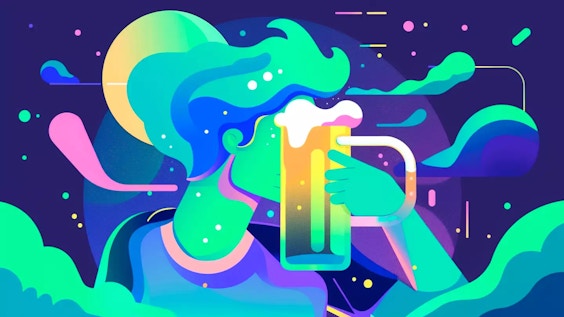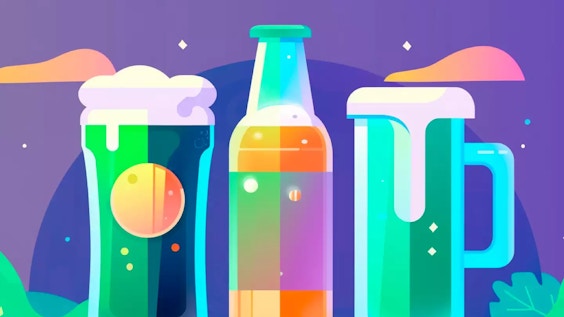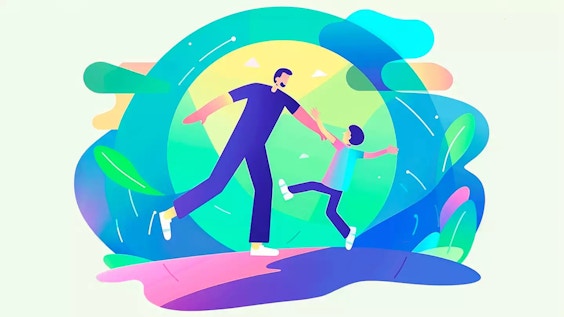I Am Sober is a free app that helps you get some control back in your life.

Addicted to Wine? Top Myths vs. Reality
Last Updated: Thu, May 22, 2025Two of the most common types of alcoholic beverages people enjoy in the US are beer and wine. Neither of these options is considered to be hard liquor, which is part of why people are drawn to them and don’t see them as being as addictive. The reality is that beer and wine are just as addictive as any other kind of alcohol, which can lead to problems related to alcohol use.
In this article, we will discuss beer vs. wine and some common misconceptions about these beverages.
Can You Become Addicted to Wine?
Yes, it is possible to become addicted to wine. Wine has a perception of being a less harmful alcoholic drink. However, it still contains alcohol and can lead to alcohol addiction when consumed excessively. Wine is also often seen as a casual or social drink. This can make it easier for wine drinkers to overlook their own drinking habits and the potential for dependency.
Wine addiction can develop in much the same way as other forms of alcohol dependence. Regular and excessive drinking over time can even lead to physical dependence, where the body craves the effects of alcohol to feel normal. This can result in cravings, withdrawal symptoms when not drinking, and an inability to control wine consumption despite negative consequences.
Types of Alcohol Addiction
Something that is important to understand is that alcohol addiction, in general, is not broken down by the type of beverage. Alcohol is alcohol, no matter what alcohol content your drink has. Because of this, you can become addicted to any kind of alcoholic beverage you drink, even if it is a milder option.
This also means that being addicted to beer vs. wine is not necessarily going to come with worse repercussions. How bad your addiction is depends on your drinking habits and your lifestyle.
Beer Addiction
Like wine, beer is one of the oldest types of alcoholic beverages. It's usually made from the fermentation of barley or other types of grains. When compared to other types of alcoholic beverages, beer usually contains the least amount of alcohol. It usually has around 5% in a single serving.
However, people often forget that they are drinking more beer. Take note that the average serving size for beer is 12 ounces. Because you are drinking a large amount of beer, you are often drinking the equivalent of a glass of wine or another serving of hard liquor.
Beer is also one of the more common types of alcohol that people drink regularly. This creates a higher risk of you drinking excess beer to the point of it becoming an addiction.
Wine Addiction
Wine is another type of traditional alcoholic beverage made from fermenting grapes. Unlike beer, the average serving size of wine is five fluid ounces. This will usually contain about 12% alcohol content.
While a single glass of wine is not usually an issue for people, this does not necessarily mean you are only drinking one glass. Many people who drink wine tend to drink a few glasses at a time. Especially if it is their drink of choice or they have an issue with alcohol dependence.
Signs of Alcohol Addiction
No matter what your drink of choice is, the signs of alcohol addiction will usually fall into a few common categories. Understanding these categories can help make it a bit easier to notice if you have started to develop unhealthy drinking habits or patterns.
Impulse Control
People who have addiction will often struggle with impulse control. This results in them being unable to stop their addictive habits even as these habits lead to more substantial negative repercussions.
You may go out with the intention of drinking one glass of wine only to order and drink a whole bottle yourself. Or you may want a beer before going to bed and end up drinking the whole pack.
Behavioral Issues
Most people experience some form of behavioral issues if they struggle with alcohol abuse. For some people, this takes the form of aggression, irritability, recklessness, or mood swings. You may also start to experience behavioral issues when you aren’t drinking as your cravings kick in.
Excess Alcohol Consumption
One of the most common signs of alcoholism is increasing how much you drink. You may start to drink more throughout the week or drink more in each sitting. Eventually, this can lead to binge drinking alcohol.
Slowly increasing how much you drink not only contributes to behavioral issues and impulse control. It also builds up a higher tolerance, which results in you needing to drink more.
Physical Problems
Most people who drink excessively tend to start noticing physical problems that are directly related to their drinking. You may be drinking alcohol more than you are eating. Or you may be struggling with dehydration if you aren’t drinking enough water.
Many people also have stomach irritability and flushed skin and may either gain or lose weight. Drinking can also contribute to neurologic symptoms such as difficulty standing, unsteady walking, and numbness and tingling.
Common Misconceptions About Beer and Wine
When people think of alcohol addiction, they will often think of hard liquor like whiskey, rum, and vodka. But the reality is that some of the most common types of alcohol addiction revolve around alcoholic beverages that are more accessible, like beer and wine.
Here are some common misconceptions and beliefs that can lead people to risky drinking behaviors that could result in addiction:
-
I have a high alcohol tolerance: It is easy to make excuses for heavy drinking by saying that you have a high tolerance for alcohol. But the reality is that this is still a problem. A high tolerance only means that you have to drink more to experience the repercussions of addiction, such as blackouts and behavioral issues.
-
I only drink beer: Some people make the excuse that they only enjoy drinking beer as they think that this doesn’t fall into the category of alcohol. Even though beer has a smaller amount of alcohol in it, many people still drink more than enough to make up for that.
-
I only drink on the weekends: Drinking on the weekends can be used as an excuse to say that you have your drinking under control. The reality is that many people tend to binge drink over the weekend, which is just as bad as drinking throughout the week.
-
I drink to take the edge off: Wine and beer are common options for relaxing and reducing negative feelings like anxiety and stress. However, this is not a good excuse because it is never healthy to drink for mental health reasons.
Conclusion
When it comes to beer vs. wine, there isn’t an alcoholic beverage that is necessarily worse when it comes to addiction. Any beverage that contains alcohol can become addictive, and it will usually come with many of the same symptoms.
The main thing is that you acknowledge that you have a problem and seek help from the correct sources. No matter what alcoholic beverage you struggle with, there are always resources available that can help you start on your recovery journey.
I Am Sober is a free app that helps you get some control back in your life. Download the app on iTunes or Google Play.
I Am Sober is a free app that helps you get some control back in your life.





